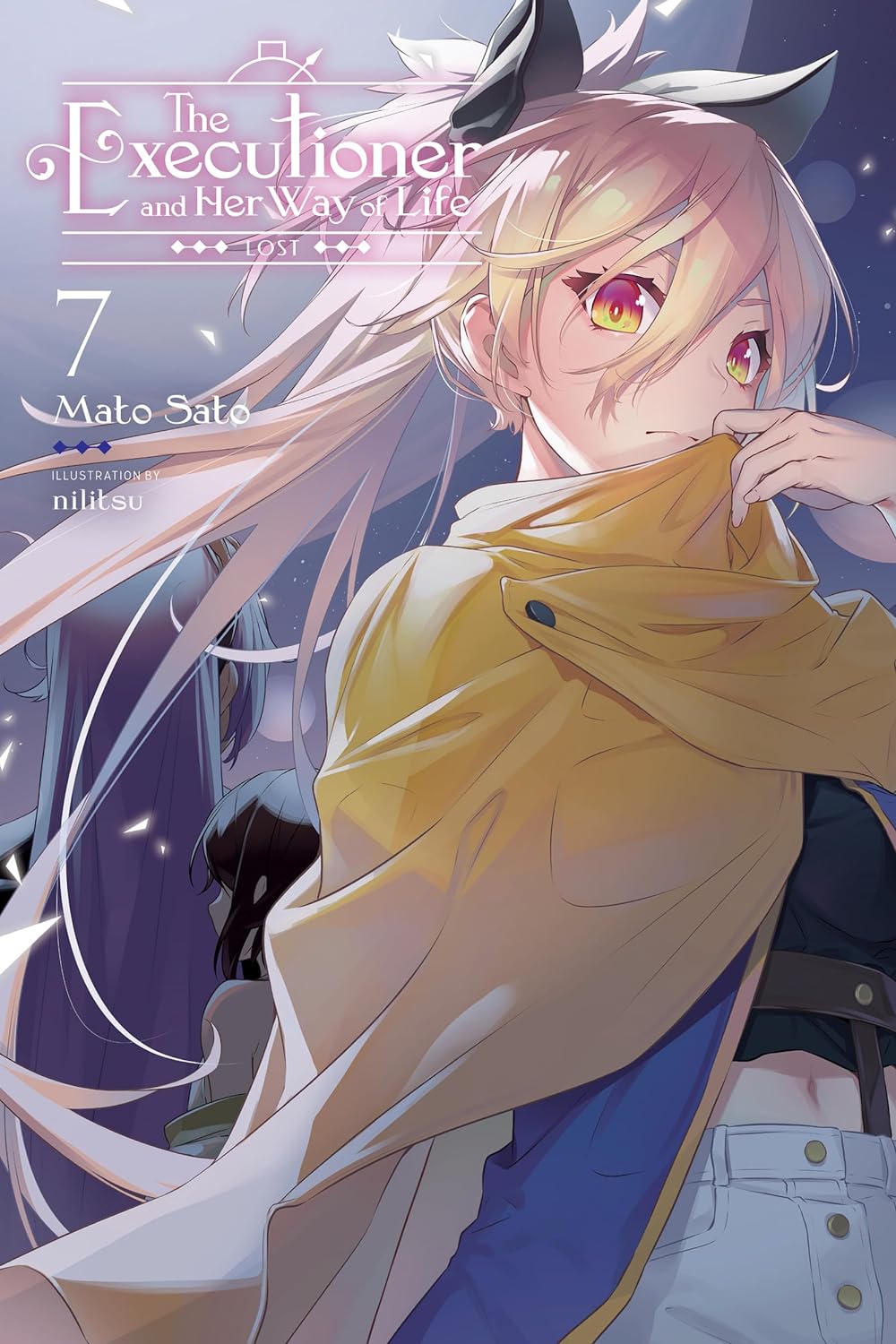By Mato Sato and nilitsu. Released in Japan as “Shokei Shoujo no Virgin Road” by GA Bunko. Released in North America by Yen On. Translated by Jenny McKeon.
I urge the author to do something for the next book. After writing the novel, throw the first half of it out, and replace it with a summary. Then publish the second half. This way we get all the good bits, and we avoid the crushing first half that this series always has, because the prose works best when it’s in fast action sequences and compelling character dramas, and not “moving people from place to place”. It doesn’t help that my three favorite characters in the series are Akari, Momo and Ashuna, and Akari is AWOL for plot reasons, Ashuna simply never appears, and Momo shows up on the final page. This leaves us with Menou, who I like well enough but who is essentially “the serious one”. And we also get someone who is so obviously a replacement for Akari that the text has to call it out. Fortunately, the book also has Sahara. I love Sahara. Even more so here, as she has character development, 100% against her will.
We pick up six months after the end of Book 6. Ashuna has gone back home to essentially announce that the ryals are joining the revolutionaries. Momo is in charge of watching over Akari’s body. And Menou is busy being the world’s most wanted terrorist. She’s assisted by Abbie, a conjured soldier who regards Menou (and most everyone else) as her “little sister”, and also Maya, once Pandaemonium, who has her memories of a thousand years ago back but that’s led to all sorts of issues. Chasing them is the Church, led by her old instructor priestess (unclear if Teach is her name or her job, but she’s only called that), and Michele, the new Priestess in Charge, who works for, and honestly worships a bit, Hakua. Things start to go south when Maya gets separated from Menou and Abbie. But it’s OK! Sahara will help her!… maybe?
I grumped a lot on Twitter about this, so I will admit: I really enjoyed the second half. Specifically, I enjoyed everything involving Maya and Sahara. Maya’s subplot, as she tries to reconcile her Pandaemonium memories (she’s still very bitter about Manon’s death, even though, as Sahara points out, Manon was actively seeking her own death) with her memories as a Japanese girl who was being tortured over and over for her Concept. No wonder she tries to reach out to Hakua even though she knows it’s a trap. But Sahara, oh my God. She has all the best lines in the book, and as you’d expect is lazy, jaded, and quick to avoid work and shift responsibility onto others… until she isn’t. It’s a surprise to Maya, but it’s an even bigger surprise to Sahara, who is startled to find herself trying hard to protect Maya even at the cost of her own life. It made me smile.
That said, events towards the end promises the fun times are still not happening. Menou has lost a very important connection… and that connection seems to know it. Expect fireworks next time. Probably in the 2nd half of the book.



